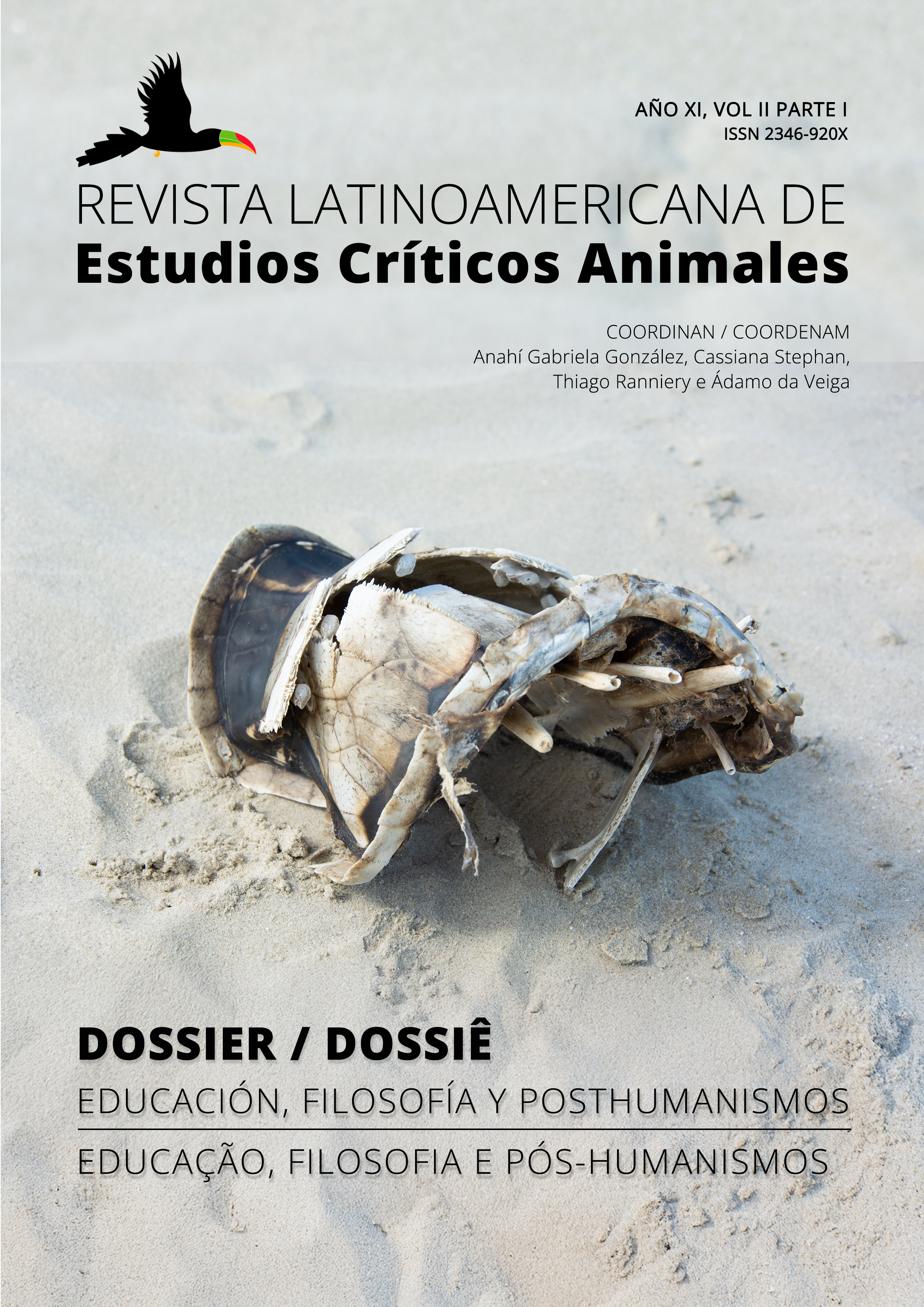Notes on the extinction of donkeys
Keywords:
Asno, Buffon, Roussaeu, BressonAbstract
Reading reports about the threat of extinction that looms over donkeys in Brazil and around the world led us to return to the writings of Count Buffon on domestic animals and, more specifically, to his entry on donkeys. Buffon contrasts the immense usefulness of donkeys to humans, their innate goodness, with the frequent mistreatment that accompanies them throughout their lives. We also discussed the philosopher Jean-Jacques Rousseau, who took advantage of Buffon's reading to reflect on the theme of exploitation through labor and inequality among men. We also commented on the film Au Hasard Balthazar, by Robert Bresson, where we find an artistic approach to the theme of mistreatment of donkeys and Rousseau's association between animal exploitation and exploitation of man by man. Finally, we looked at the articles that deal with the extinction of donkeys in Brazil and that give us an overview of the gravity of this situation.
References
Bough, J. (2011) Donkey. Londres: Reaktion Books.
Bresson, R. (1966) Au Hasard Balthazar. Filme. Paris: Argos Films.
_______. (2005) Notas sobre o cinematógrafo. Tradução de Evaldo Mocarzel. São Paulo: Iluminuras.
Buffon. (2020a) História Natural. Tradução de Isabel Coelho Fragelli, Pedro Paulo Pimenta e Ana Carolina Soliva Soria. São Paulo: Unesp.
_______. (2020b) Das épocas da natureza. In: _______. História Natural. Tradução de Isabel Coelho Fragelli, Pedro Paulo Pimenta e Ana Carolina Soliva Soria. São Paulo: Unesp.
Cook, A. (2002) Jean-Jacques Rousseau and Exotic Botany. In: (Org.) MACCUBBIN, R.; KNELLWOLF, C. Exoticism and the culture of exploration. Durham: Duke University Press.
Deleuze, G. (2004) L'Abécédaire de Gilles Deleuze. DVD. Direção de Pierre-André Boutang. Paris: Montparnasse.
Edmeades, B. (2021) Megafauna: first victims of the human-caused extinction. Fayetteville: Houndstooth Press.
Fragelli, I.; Pimenta, P.; Soliva, A. (2020) Apresentação. In: História Natural. Tradução de Isabel Coelho Fragelli, Pedro Paulo Pimenta e Ana Carolina Soliva Soria. São Paulo: Unesp.
Kolbert, E. (2015) A sexta extinção: uma história não natural. Tradução de Mauro Pinheiro. Rio de Janeiro: Intrínseca.
Larousse (2024) Dicionário Larousse. Recuperado de: https://www.larousse.fr/
Lévi-Strauss, C. (1975) Totemismo hoje. Tradução de Malcolm Bruce Corrie. Petrópolis: Vozes.
Merriam-Webster. (2024) Dicionário Merriam-Webster. Recuperado de: https://www.merriam-webster.com/
Michaelis. (2024) Dicionário Michaelis. Recuperado de: https://michaelis.uol.com.br/
Musil, R. (2016) Sobre a estupidez. Tradução de Simone Pereira Gonçalves. Belo Horizonte: Editora Âyiné.[
Rousseau, J.-J. (2020) Discurso sobre a origem e os fundamentos da desigualdade entre os homens. In: _______. Rousseau — Escritos sobre a política e as artes. Tradução de Iracema Gomes Soares e Maria Cristina Nagle. São Paulo: Ubu Editora.
_______. (2022) Emílio ou Da educação. Tradução de Thomaz Kawauche. São Paulo: Unesp.
Schubert, F. (2024) Franz, sublime Schubert. Organização, tradução e introdução por Mário Alves Coutinho. São Paulo: Tipografia Musical.
Sontag, S. (1966) Spiritual style in the films of Robert Bresson. In: Against interpretation. Nova York: The Noonday Press.
Starobinski, J. (2011) Jean-Jacques Rousseau: a transparência e o obstáculo; seguido de Sete ensaios sobre Rousseau. Tradução de Maria Lúcia Machado. São Paulo: Companhia das Letras.
Downloads
Published
Issue
Section
License
Copyright (c) 2024 Revista Latinoamericana de Estudios Críticos Animales

This work is licensed under a Creative Commons Attribution-NonCommercial-ShareAlike 4.0 International License.
La Revista Latinoamericana de Estudios Críticos Animales con ISSN 2346-920X se adhiere a las diferentes iniciativas que promueven el acceso libre al conocimiento, por lo que todos los contenidos de la misma son de acceso libre y gratuito y publicados bajo la licencia Creative Commons, que permite su difusión pero impide la alteración de la obra e incluye siempre mención al autor/a y fuente.
Es decir, una licencia de tipo Atribución-NoComercial-SinObraDerivada.
Por ello, los correos electrónicos de los autores se encontrarán a disposición de los lectores, en caso de que deseen contactarlos personalmente.




